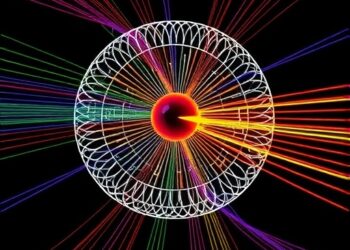Auburn University’s Department of Physics has been awarded two significant National Science Foundation (NSF) grants, marking a major step toward transforming physics education across all levels—from introductory courses to graduate studies. The grants, led by Assistant Professor Eric Burkholder, a specialist in Physics Education Research, aim to close the gap between traditional physics instruction and the complex problem-solving skills needed for real-world scientific challenges.
Auburn University’s Department of Physics has been awarded two significant National Science Foundation (NSF) grants, marking a major step toward transforming physics education across all levels—from introductory courses to graduate studies. The grants, led by Assistant Professor Eric Burkholder, a specialist in Physics Education Research, aim to close the gap between traditional physics instruction and the complex problem-solving skills needed for real-world scientific challenges.
The cornerstone of these projects is the recognition that traditional methods of teaching physics—while effective in conveying foundational concepts—often fall short in preparing students to tackle the kind of unsolved, complex problems they will face in their careers. “We need to start training physics students to solve problems with no known solution and no known way of arriving at that solution,” said Prof. Burkholder. “Our current teaching has them practice skills that are rapidly being replaced by AI.”
This revolutionary approach includes a comprehensive study of how both students and faculty perceive scientific problem-solving in the classroom, and how these perceptions can be better aligned with the demands of real-world physics. The research will also involve the development of new tools to reliably measure students’ problem-solving abilities in practical, real-world contexts. These tools will then be used to transform the physics curriculum, ensuring that students are better equipped for the challenges of their future careers.
The project is a collaborative effort involving multiple faculty members within Auburn University’s Department of Physics, all dedicated to enhancing both undergraduate and graduate education. By bringing together students and practicing physicists, the initiative aims to create a dynamic environment where academic learning meets practical application, providing a more holistic educational experience.
While this initiative is of utmost importance to Auburn University, it also holds significant implications for the broader scientific community and the field of physics education. By pioneering new ways of teaching problem-solving skills, Auburn University is positioning itself at the forefront of educational innovation, with the potential to influence physics curricula nationwide.
Prof. Burkholder’s work not only promises to elevate the standard of physics education at Auburn but also aims to set a new benchmark for educational practices across the country. “Teaching physics is often far removed from doing physics,” Burkholder noted. “We seek to bridge this gap and ensure that our students are not just learning physics but are learning how to think and act like physicists.”
To highlight this groundbreaking work, Auburn University plans to capture the spirit of collaboration and innovation through a team photograph of the faculty and students involved. This image will serve as a powerful visual representation of the collective effort to advance physics education and will be featured prominently in the press release.
About Auburn University’s Department of Physics
Auburn University’s Department of Physics is dedicated to advancing the frontiers of knowledge through research and education, with a strong emphasis on both theoretical and applied physics. The department offers a wide range of undergraduate and graduate programs designed to prepare students for successful careers in academia, industry, and beyond. This new NSF-funded initiative will also create exciting opportunities for prospective graduate students who are passionate about improving physics education, inviting them to join Auburn’s PhD program where they will have the chance to contribute to groundbreaking research and help shape the future of physics education.




